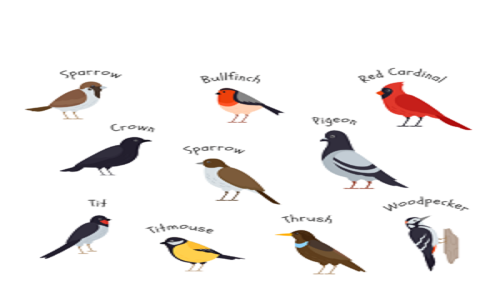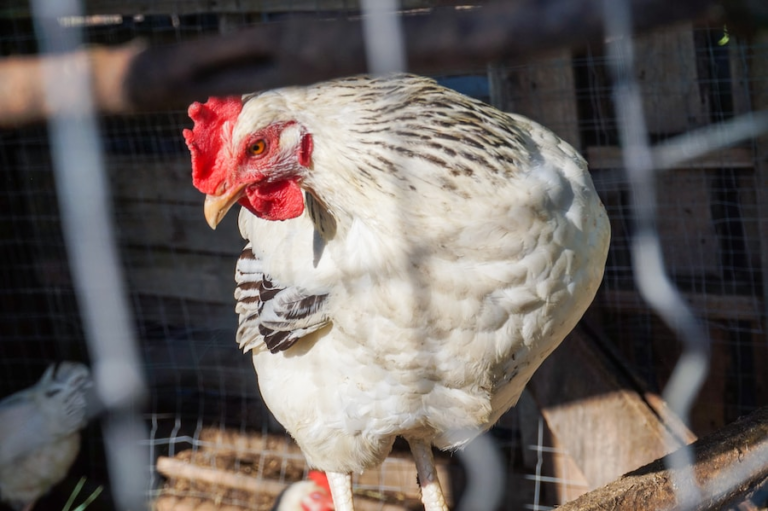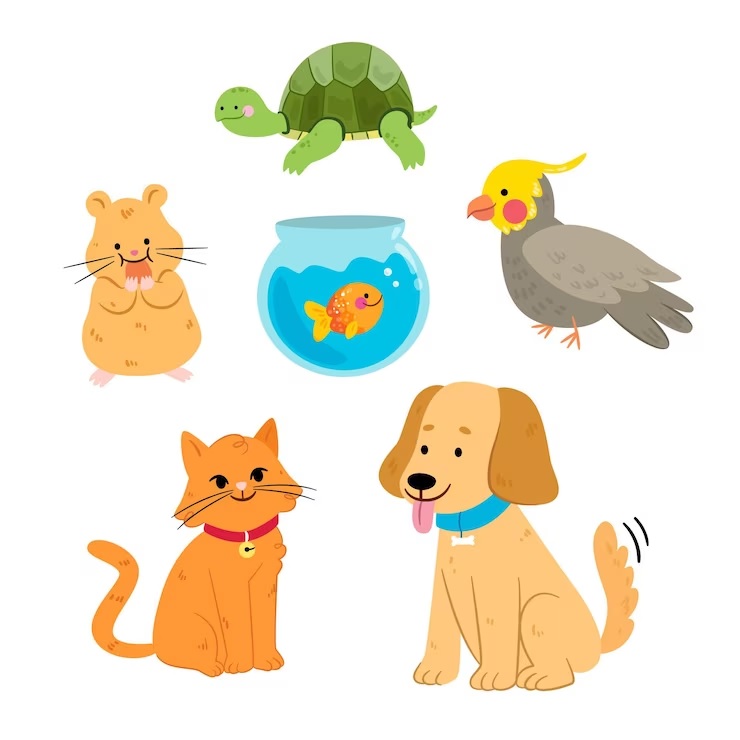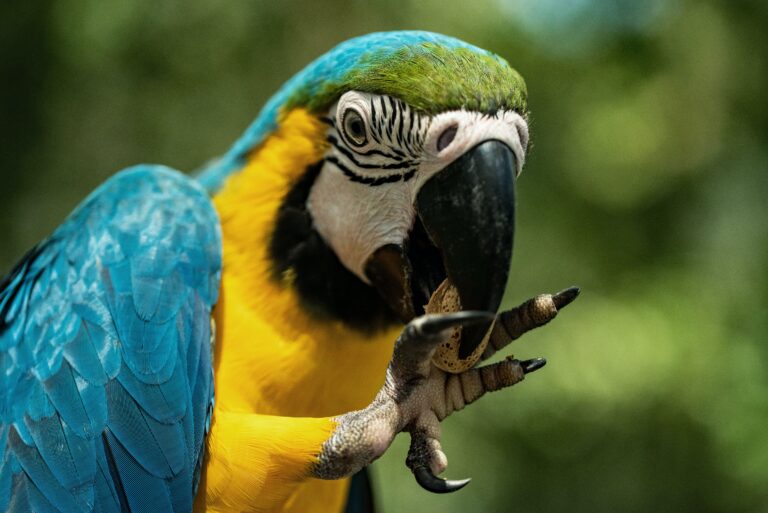Introduction
Birds, with their vibrant colors, melodious songs, and playful antics, have long captured the hearts of people around the world. As pets, they bring a unique charm to households, offering companionship, beauty, and even a touch of the wild. In this comprehensive guide, we’ll delve into the joys and responsibilities of keeping birds as pets, exploring different species, care requirements, and the enriching experience they can provide.

Benefits of Having Birds as Pets
- Companionship and Interaction: Birds are known for their social nature. Many species are intelligent and enjoy interacting with their human companions. From chatty parrots to curious finches, they can become genuine friends and even mimic human speech.
- Aesthetic Appeal: The vibrant plumage of birds can add a burst of color and beauty to any living space. From the iridescent feathers of a peacock to the rainbow hues of a lovebird, birds bring an aesthetic appeal that’s hard to match.
- Therapeutic Presence: Watching and listening to birds can be incredibly soothing. Their songs and movements can reduce stress and anxiety, making them therapeutic companions.
- Learning Opportunity: Birds can offer an educational experience for individuals and families. Understanding their behaviors, habitats, and needs can be a fun and enriching learning journey.
- Low Space Requirements: Unlike larger pets, birds don’t require much space. Even small apartments can accommodate a birdcage, making them suitable for urban dwellers.

Popular Bird Species as Pets
- Budgerigars (Budgies): These small parrots are known for their playful personalities and ability to mimic sounds. They come in a variety of colors and are relatively easy to care for.
- Cockatiels: With their distinctive crests and friendly dispositions, cockatiels are popular choices for beginner bird owners. They can be trained to do tricks and are known for their melodious whistles.
- African Grey Parrots: Renowned for their high intelligence and ability to mimic human speech, African Greys form strong bonds with their owners. They require mental stimulation and social interaction.
- Canaries: Known for their beautiful songs, canaries are smaller birds that add a melodious ambiance to any home. They’re relatively low-maintenance but may prefer less handling.
- Lovebirds: These small parrots are named for their strong pair bonds and affectionate behaviors. They thrive on companionship and are best kept in pairs.
Caring for Pet Birds
- Housing: Choose a spacious and safe cage appropriate for the bird’s size. The cage should allow for easy movement and include perches, toys, and feeding stations.
- Diet: A balanced diet is crucial for a bird’s health. Consult a veterinarian for recommendations on appropriate bird feed, fresh fruits, vegetables, and occasional treats.
- Socialization: Spend quality time with your bird daily to build a strong bond. Some birds may require more interaction than others, so understand your bird’s personality.
- Enrichment: Birds are intelligent creatures that need mental stimulation. Provide toys that challenge their problem-solving skills and keep them engaged.
- Grooming: Regular grooming includes trimming nails, wings (if necessary), and maintaining feather health. Some birds enjoy baths, while others prefer misting.
- Healthcare: Find an avian veterinarian who specializes in bird care. Regular check-ups are essential to catch any health issues early.
- Environment: Keep your bird’s living space clean and free from drafts. Avoid exposing them to harmful fumes or chemicals.
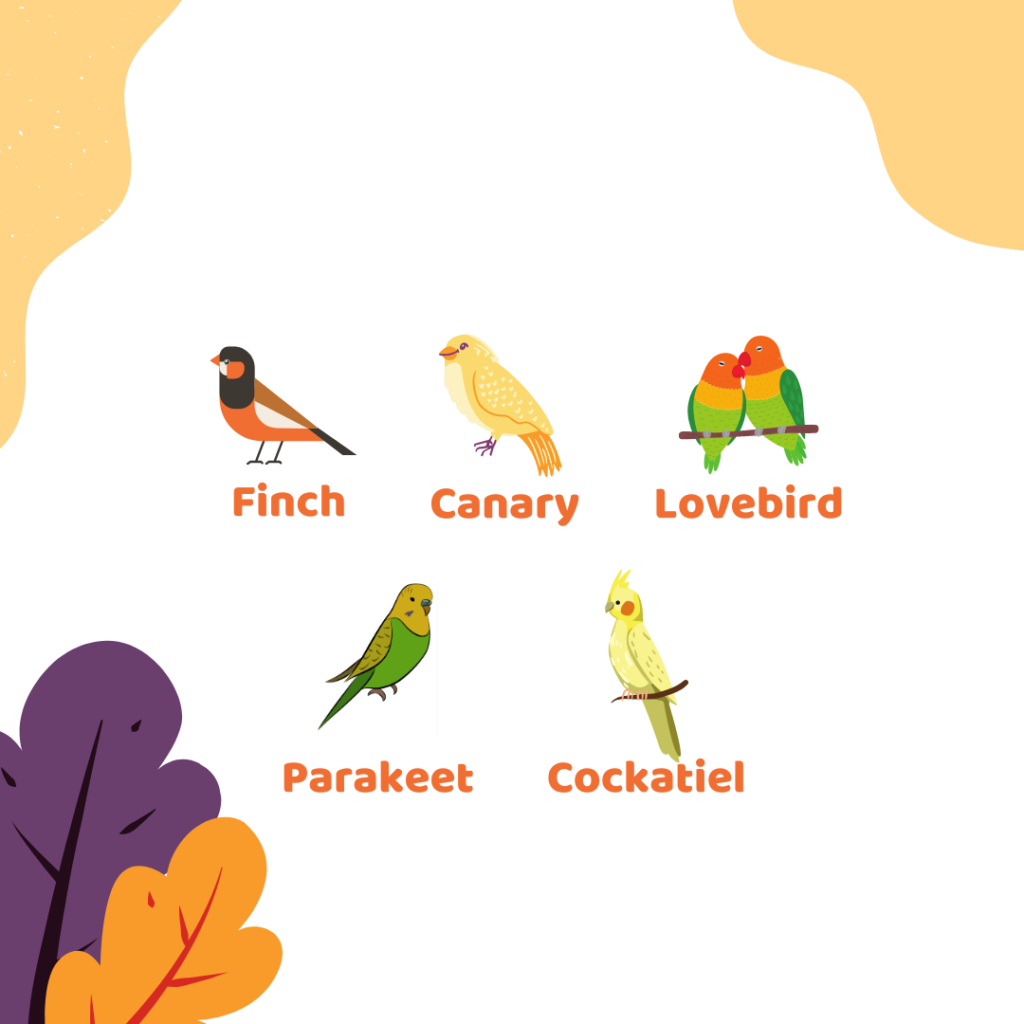
Challenges and Considerations
- Longevity: Many pet birds have long lifespans. Before bringing a bird home, consider the commitment involved in caring for them for potentially decades.
- Noise: Some birds, especially parrots, can be noisy. Understand the vocal tendencies of your chosen species and consider neighbors’ sensitivities.
- Mess: Birds can be messy eaters, and feathers and droppings are inevitable. Regular cleaning is essential to maintain a hygienic environment.
- Social Needs: Certain species, like lovebirds, require companionship. If you can’t provide constant interaction, consider getting a pair.
Conclusion
Birds as pets offer an enchanting blend of beauty, companionship, and intelligence. They can become lifelong friends, adding both visual and auditory delights to your home. However, caring for them comes with responsibilities, from providing proper nutrition and mental stimulation to regular veterinary care. With the right knowledge and commitment, birds can bring a unique and rewarding dimension to your life, making them cherished members of your household for years to come.

